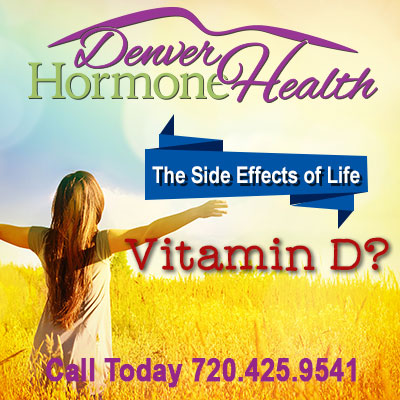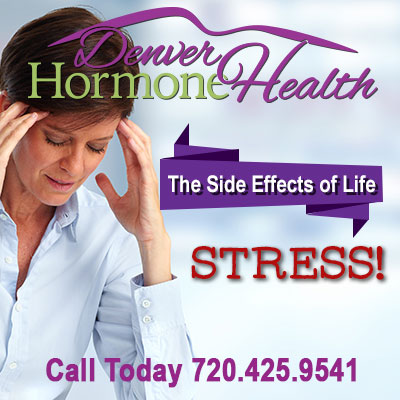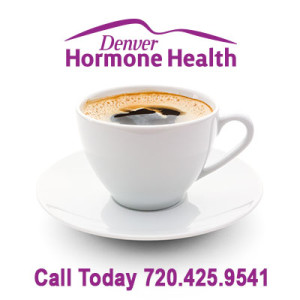THE SIDE EFFECTS OF LIFE – The Sunshine Vitamin
 Without question, it’s Vitamin D. Vitamin D is essential to our overall health and wellness—male, female, any age, anywhere in the world. Vitamin D is produced by your skin in response to exposure to ultraviolet radiation from natural sunlight. Exposure to ultraviolet B radiation in sunlight provides the mechanism for more than 90% of the vitamin D production in most individuals. While called a vitamin, D is actually a fat-soluble hormone essential for supporting a strong immune system that helps protect the body against many diseases some of which are listed at the end.
Without question, it’s Vitamin D. Vitamin D is essential to our overall health and wellness—male, female, any age, anywhere in the world. Vitamin D is produced by your skin in response to exposure to ultraviolet radiation from natural sunlight. Exposure to ultraviolet B radiation in sunlight provides the mechanism for more than 90% of the vitamin D production in most individuals. While called a vitamin, D is actually a fat-soluble hormone essential for supporting a strong immune system that helps protect the body against many diseases some of which are listed at the end.
NO DEFICIENCY OF STARTLING INFORMATION
Actually, there is very little people know about what we’ll keep referring to as “Vitamin D.”
• Three –quarters of teens and adults in US are vitamin D deficient
• The healing rays of natural sunlight (that generate vitamin D in your skin) cannot penetrate glass. So you don’t generate vitamin D when sitting in your car or home.
• People with dark skin pigmentation may need 20 – 30 times as much exposure to sunlight as fair-skinned people to generate the same amount of vitamin D. That’s why prostate cancer is an epidemic among black men — it’s a simple, but widespread, sunlight deficiency.
• Sufficient levels of vitamin D are crucial for calcium absorption in your intestines. Without sufficient vitamin D, your body cannot absorb calcium, rendering calcium supplements useless.
• Chronic vitamin D deficiency cannot be reversed overnight: it takes months of vitamin D supplementation and sunlight exposure to rebuild the body’s bones and nervous system.
• It is impossible to generate too much vitamin D in your body from sunlight exposure: your body will self-regulate and only generate what it needs.
• We all need the active form of D to gain access to the genetic blueprints stored inside our cells.
THERE’S GOTTA BE OTHER WAYS TO GET IT
First of all, a tanning bed will never provide you with the vitamin D that you need, and can actually be unsafe. Not understanding the facts can literally mean the difference between life and death. Both ultraviolet A (UVA) and ultraviolet B (UVB) radiation cause cell damage that can lead to skin cancer.
Another important fact is that only about 10% of foods we consume provide us with sufficient amounts of Vitamin D. Dietary sources that provide minimal amounts include milk, yogurt, tuna, trout, salmon, sole, flounder, fortified cereal, cod liver oil, sardines in oil, mackerel, ricotta cheese and mushrooms. Not foods you’ll actually find on most people’s tables very often.
SLATHER IT ON AND LOSE
There are people who see a sunny day and just have to get out in it, no protection, and no sunscreen. No matter what anyone tells them. Others run out and get the highest number sunscreen possible which can be as high as 100. A hundred? SPF 15 product blocks about 94% of UVB rays, SPF 30 product blocks 97% of UVB rays. When sun exposure is limited or blocked with high-SPF sunscreens, dietary vitamin D intake must increase to compensate for the lack of the vitamin absorbed from sunlight.
CASTING A CLOUD OVER YOUR HEALTH
Winter can be taxing on our mental and physical strength. It’s a season that persistently tests our limits of surviving darkness and cold, biting winds. But one way to assist in boosting your immune system as well as fighting your seasonal affective disorders during the months of flu, darkness, and general downtrodden spirits, is to make sure your Vitamin D levels are up to par.
The less sun you get, the less Vitamin D you absorb. Consider cloud cover — clouds can filter ultraviolet B (UVB) rays, which is the type that converts into vitamin D (UVA are the rays that can cause cancer). The top US cities where over half the days a year cloud covers more than three-quarters of the sky are: Seattle, WA, Portland, OR, Buffalo, NY, Pittsburg, PA, Cleveland, OH, Rochester, NY, Columbus, OH, Cincinnati, OH and Detroit, MI. The least sunny cities in the US include, Juneau, AK, Mt. Washington, NH, Quillayute, WA, Elkins, WV, Anchorage, AK, Pohnpei, Micrones, PC and Nome, AK. Boy, it’s gloomy.
While Denver has as many of 300 days of sunshine per year, there are still all the other problems of getting enough Vitamin D. Vitamin D deficiencies are still epidemic and could negatively be affecting your life. Right here. But there is something you can do about it.
DENVER HORMONE HEALTH IS THE ANSWER. STEPHEN GOLDSTEIN M.D. IS AN AUTHORITY AT MEASURING HOW A VITAMIN D DEFICIENY MAY BE TAKING A TOLL ON HOW YOU FEEL. WITH A SIMPLE TEST HE ANALYZES THE RESULTS AND CREATES A TAILORED APPROACH TO MAKE YOUR LIFE HEALTHIER AND BRIGHTER.
SO CALL NOW OR REQUEST MORE INFORMATION.
- Acne
- Alzheimer’s disease*
- Anaphylaxis
- Anemia
- Asthma*
- Autism
- Allergies
- Breast cancer*
- Cervical cancer
- Chronic obstructive pulmonary disease
- Cognitive impairment
- Colorectal cancer*
- Congestive heart failure
- Coronary heart disease
- Dental caries*
- Depression*
- Diabetes, type I*
- Diabetes, type II*
- Eczema*
- Endometrial cancer
- Esophageal cancer
- Fibromyalgia
- Gastric cancer
- HIV and AIDS
- Hypertension*
- Inflammatory bowel disease*
- Influenza*
- Leukemia
- Lung cancer
- Lupus
- Melanoma
- Multiple myeloma
- Multiple sclerosis*
- Osteoporosis*
- Ovarian cancer
- Pancreatic cancer
- Parkinson’s disease
- Periodontal disease
- Pneumonia*
- Preeclampsia*
- Prostate cancer*
- Renal cancer
- Respiratory infections*
- Rickets*
- Sepsis and septicemia
- Tuberculosis*

 THE DAILY GRIND
THE DAILY GRIND Coffee Helps Fight Off Cancers
Coffee Helps Fight Off Cancers